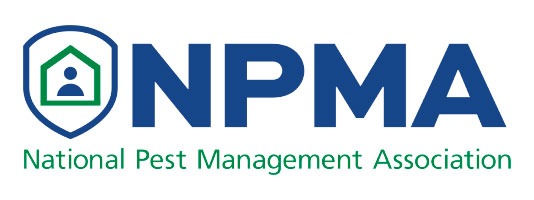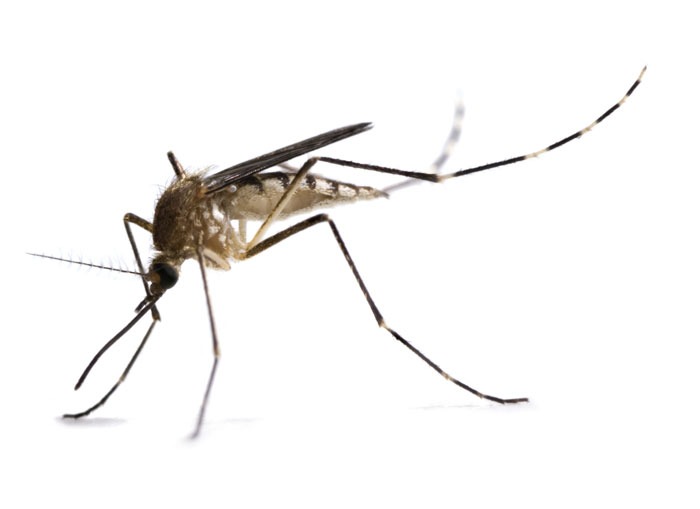
According to the CDC, there are more than 200 types of mosquitoes in the continental United States and U.S. territories with more than 60 species of mosquitoes in Pennsylvania alone
The five most common types of mosquitoes found in Pennsylvania include the Common House mosquito, White-Dotted mosquito, Inland Floodwater mosquito, Rock Pool mosquito and the Eastern Tree Hole mosquito. The Yellow Fever mosquito and the Asian Tiger mosquito — two invasive mosquito species — have been found in southern Pennsylvania, but their range may change and move further north.
Mosquitoes are flying insects that live both outside and inside that sometimes bite people. Of the 200 types of mosquitoes in the country, about 12 types spread harmful germs through bites that can make humans sick. Otherwise, mosquitoes are mostly a nuisance you’ve probably become accustomed to.
Adult mosquitoes live for about 2-4 weeks depending on factors including whether they’re male or female, their species, humidity and temperature. They vary in color depending on the species, have two wings and range in size from ¼” to ½” of an inch. In Pennsylvania, mosquito season typically lasts from April through October.
Types of Mosquitoes in Pennsylvania, New Jersey and Delaware
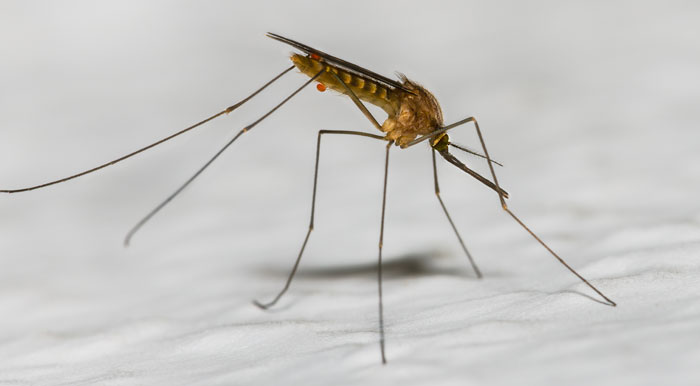
Common House Mosquito
(Culex pipiens)
The Common House mosquito is the most popular species of mosquito found in the United States. It’s also sometimes referred to as the Northern House mosquito because it’s the most common type of mosquito found in the northern United States. The Common House mosquito is a pale-to-light brown color and has light stripes on its abdomen. They range between three and seven millimeters in length. They have a proboscis (an elongated mouthpart) used for sucking up fluids. The larvae of Common House mosquitoes are aquatic and can develop anywhere water collects. Common House mosquitoes consume human blood but prefer the blood of birds like doves and pigeons.
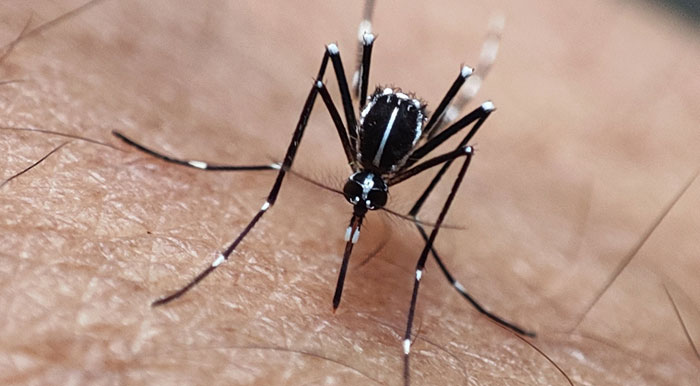
White-Dotted Mosquito
(Culex restuans)
The white-dotted mosquito is found in Canada, the United States, Mexico, Guatemala and Honduras. In the northeastern United States, this type of mosquito is especially widespread in New Jersey. The white-dotted mosquito is known to be a vector for St. Louis encephalitis and West Nile virus. It breeds in stagnant water pools.
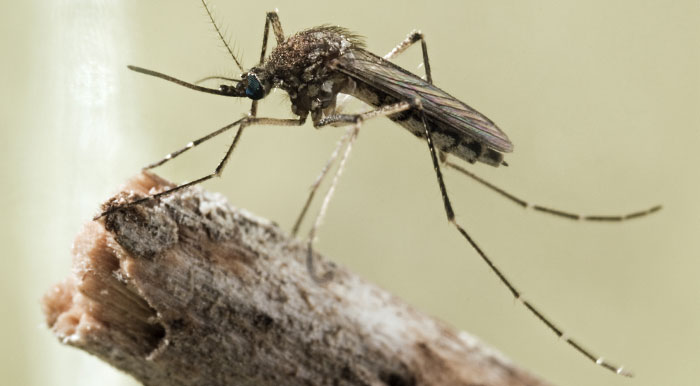
Inland Floodwater Mosquito
(Aedes vexans)
The Inland Floodwater mosquito is considered “cosmopolitan” meaning it is present in many countries around the world. In this instance, the only places an Inland Floodwater mosquito hasn’t been found are Antarctica and South America. In North America, the Inland Floodwater mosquito is very common. In the scientific name for this type of mosquito — aedes vexans — the word “vexans” is from the Latin word “vexāre” and translates to annoy, torment or harass. Only female Inland Floodwater mosquitoes take blood from humans and cattle; males feed on nectar, honeydew and sap. Inland Floodwater mosquitoes are medium-sized and have white scales. They breed in temporary bodies of fresh water like rain pools, puddles and hog wallows.
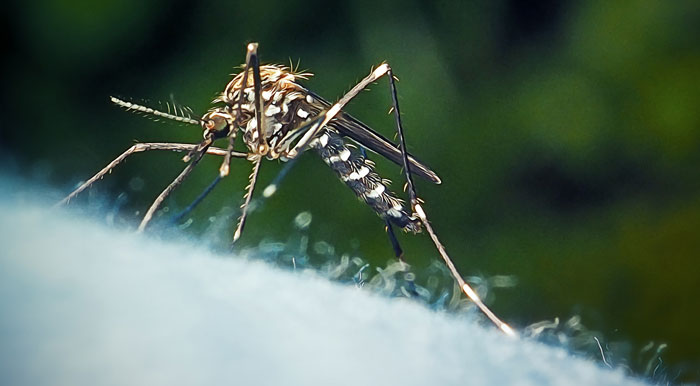
Rock Pool Mosquito
((Aedes japonicus)
The Rock Pool mosquito is also known as the Asian Bush mosquito or the Asian Rock Pool mosquito after it was described as such in 1901 in Japan. In 1998, the Rock Pool mosquito was discovered for the first time in our region in New York and New Jersey. This type of mosquito serves as a vector that can transmit the West Nile virus, Japanese and St. Louis encephalitis. Rock Pool mosquitoes are bronze with distinctive markings across their bodies. They breed in rock pools near streams, as well as buckets, tree holes and the insides of tires.
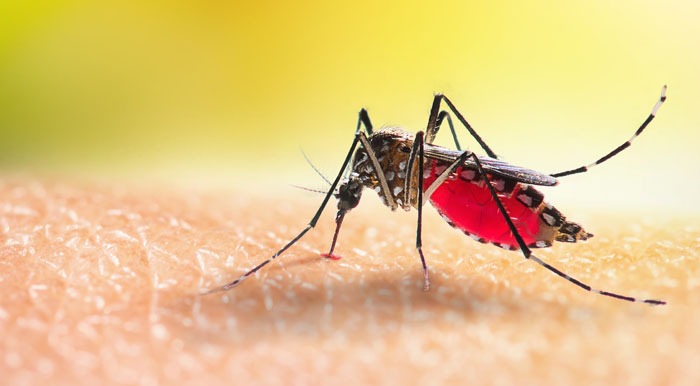
Eastern Tree Hole Mosquito
(Aedes triseriatus)
The Eastern Tree Hole mosquito is aptly named because it tends to breed in stagnant water within tree holes. It has been found in the eastern United States and southern Canada. Experts monitor the Eastern Tree Hole mosquito closely because it is a vector for viruses, including yellow fever, eastern encephalitis, Venezuelan encephalitis and western encephalitis. Eastern Tree Hole mosquitoes feed on mammals, birds, reptiles and amphibians. This type of mosquito is medium in size and appears dark with silvery scales.
Signs of an Infestation
Most types of mosquitoes breed in stagnant water so if you have any areas of stagnant water on or around your property, this is the first sign mosquitoes may be nearby. Humidity is another consideration.
Be on the lookout for:
- A high-pitched buzzing sound
- Mosquito bites on your body or scratching at night
- Mosquitoes near food like fruit in your kitchen
- Shady areas on your property
Health and Damage Considerations
Globally, mosquitoes carry a wide range of diseases such as encephalitis, yellow fever, malaria and West Nile virus. These mosquito-borne diseases can cause the following symptoms:
- Intense muscle aches
- Joint pain
- Birth defects in unborn children
- Muscle weakness
- Paralysis
- Flu-like symptoms
- Neurological illness
- High fever
- Hemorrhaging
- Death
Luckily in Pennsylvania, though many of the viruses have made appearances, most of them have only had a slight impact. You have probably heard of the Zika virus because it was popular in the news, but it has not become a major threat in Pennsylvania.
However, West Nile virus has become a concern in Pennsylvania. Symptoms for West Nile virus include flu-like symptoms, headache, body/muscle aches, swollen lymph glands and a mild rash that develops on the arms, chest, or back. 70-80 percent of people who contract West Nile virus show no symptoms, and there is currently no vaccine for this particular virus.
Behavior
Since female mosquitoes feed on blood meals, they rely on sight and smell to seek out a host. They are most attracted to people wearing dark colors, those who are actively moving and people who exhale more carbon dioxide.
Habitat
Mosquitoes are considered moisture pests and are born in areas where there is stillwater. The CDC says that some mosquito populations are attracted to living near people while others live in forests, marshes and tall grass.
Lifecycle
It only takes 8 to 10 days for a mosquito to complete the lifecycle from egg to adult. Mosquitoes live for as little as 10 days to about two months depending on different factors, including species and condition. Male mosquitoes tend to have a much shorter lifespan than female mosquitoes.
A single female mosquito can lay up to 300 eggs in one night which is why mosquito control is so important to prevent the spread of mosquitoes in a given area.
Feeding
Both male and female mosquitoes feed on nectar and plant juices but only female mosquitoes seek a blood meal to be able to reproduce.


